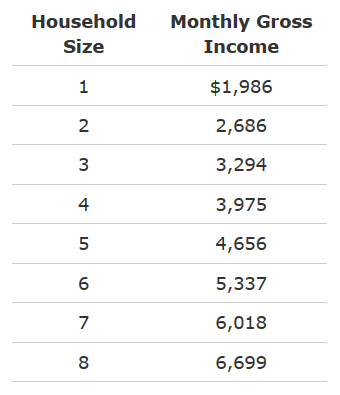Transitioning from In-Person to Virtual Nutrition Education During COVID-19
by: Cierra Smallwood
SNAP-ED Nutrition Educator
Last year, many agencies ceased in-person programming, and Douglas County SNAP-Ed was no exception. SNAP-Ed is a state-wide program that empowers low-income Kansans to live healthy lives and reduce health disparities by implementing nutrition education and policy, systems, and environmental changes. Douglas County SNAP-Ed classes are best known for their interactive nature and capability to create meaningful behavior change. Once hosted in-person and at human services organizations, SNAP-Ed nutrition education programming moved to a virtual setting. However, throughout the pandemic, Douglas County SNAP-Ed has maintained its interactive nature and created positive health behavior change.
Despite the online format, the SNAP-Ed team had interactive lessons where participants cooked with nutrition educators and tasted the food they made. April 7 - May 12, 2021, youth at the Center for Great Futures - Boys and Girls Club participated in the pilot program Teen Cuisine. Teen Cuisine is a 6-week class that teaches youth cooking skills, food safety, and physical activity. Students in this course cooked each week's recipe at individual stations. In addition, the SNAP-Ed Nutrition Educator was projected onto a screen, making it possible to cook and learn all while social distancing.
Changing to an online format did not alter SNAP-Ed's impact on low-income audiences. After each series, SNAP-Ed asks participants to share what they took away from the class. For example, one online participant said, "The EBT class helped me gain confidence to make healthy meals for myself. I was inspired to purchase a blender to make healthy smoothies, and I've been learning how to prepare vegetables. I'm also much more aware of high sodium levels in certain store-bought meals, and now know how to reduce my sodium intake by cooking my meals and using various spices." This quote from a SNAP-Ed participant illustrates the importance of this program in Douglas County.
Currently, Douglas County SNAP-Ed is teaching "Cooking Connected," a 6-week virtual cooking and nutrition class that teaches families with children under 18 how to eat well, cook, and be active on a budget. Each family receives cooking equipment to keep, funded through a Douglas County Community Foundation LiveWell Community Wellness Grant, and ingredients to "cook along" with the nutrition educator. SNAP-Ed is hosting a second "Cooking Connected" series in October 2021 and creating an online version of the curriculum where participants can learn the material on their own time.
Despite the challenges presented by the pandemic, Douglas County SNAP-Ed has maintained the integrity of the SNAP-Ed program and shown resilience and innovation to ensure that the classes are fun and promote healthy behavior change.
If you or someone you know is interested and eligible for SNAP-Ed (see eligibility requirements below), contact SNAP-Ed Nutrition Education, Cierra Smallwood, by email at cierras@ksu.edu or phone at 785-843-7058.
You are eligible for SNAP-Ed classes If:
- You qualify for FDPIR, Free and Reduced Lunch Program, Head Start, Medicaid/Kancare, SNAP, TANF, TEFAP, or WIC; or
- Your household size and gross income (income before taxes or other subtractions) fall below the following levels.

